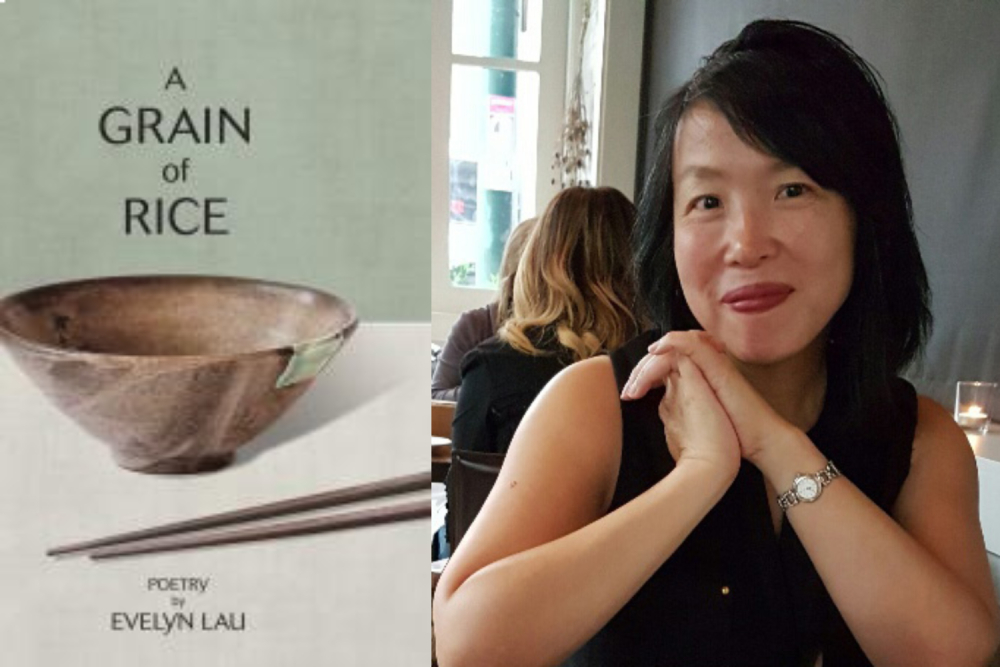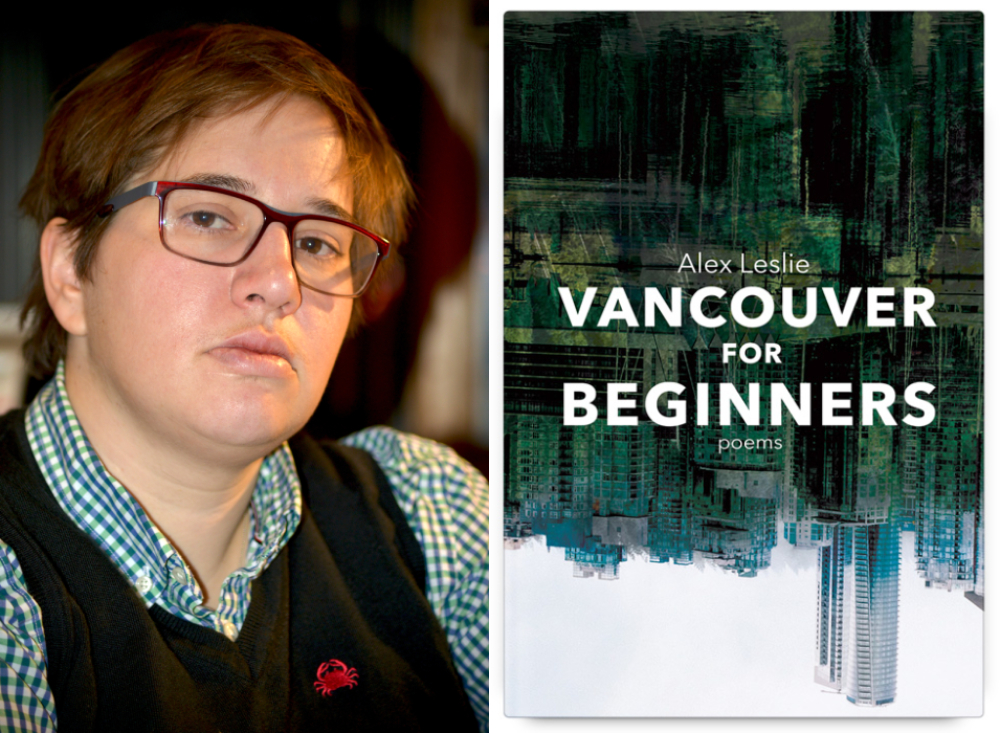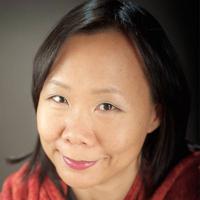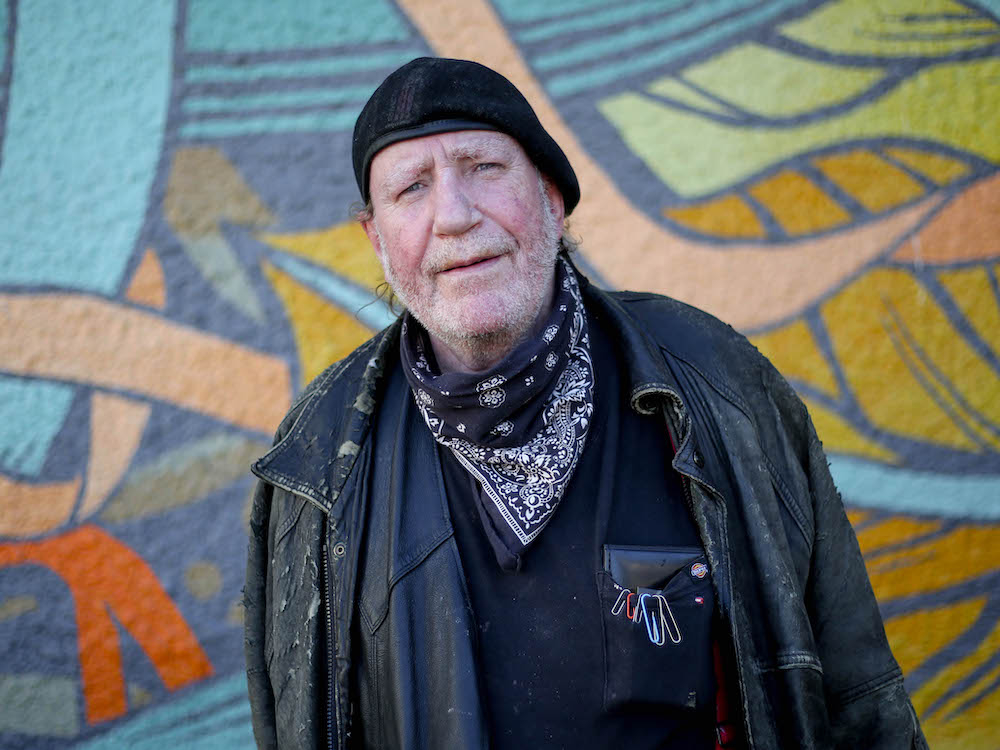The places that we have moved through in our lives have shaped us — where we’ve lived, played, studied, worked, worshipped, travelled, or found sanctuary or love. Memories of those sites, whether urban or rural, crowded or isolated, fraught or tranquil remain with us all our lives. They might haunt or comfort us, fill us with nostalgia or regret, or suddenly surface after being long submerged.
Those places can be a rich source of inspiration for all forms of art, including writing. Because of lockdowns and travel restrictions during the pandemic, most of us have had to stay close to home, which has given us the opportunity to explore and rediscover our local surroundings. Poetry can provide us with an alternative window into the familiar, revealing complex layers and textures of understanding about a place, person and time — past, present or future, or perhaps all three.
I firmly believe that everyone can write a poem, and have been pleased to see the wonderful poems about diverse local sites that have been arriving in my mailbox for the City Poems Contest that I organized as part of my legacy project as Vancouver’s poet laureate.
The City Poems Contest will be accepting submissions of unpublished, original poems about historical, cultural and/or ecological sites within Vancouver and the UBC Endowment Lands until April 15, 2022. Former Vancouver poet laureate Rachel Rose will be judging the established poets category, This Magazine’s poetry editor David Ly will be judging the emerging poets category and Bonnie Nish, UBC instructor and Word Vancouver Festival’s executive director, will be judging the youth category.
For those seeking guidance on how to write a place-based poem, there are still some spots available for the free online workshop, Writing the City: Crafting Poems on Place that I am facilitating through the Vancouver Public Library on March 19, from 2 to 3:30 p.m.
I’ve also set up a contest resource page that might be helpful for those seeking both inspiration and material. It includes websites and books on Vancouver’s history, as well as poetry books with city-themed poems.
In the meantime, here are some examples of place-based poems by three acclaimed local poets that might offer some inspiration. Whether lyrical, narrative or experimental, a good poem can serve as a kind of guide to how metaphor, images, words and silence may work together in synergy.
Poet Henry Doyle has been writing and publishing poems about Vancouver’s Downtown Eastside since he joined Thursday’s Writing Collective (now named the Downtown Eastside Writers’ Collective) at the Carnegie Centre in 2008. His gritty debut collection of poetry, No Shelter, takes readers on a journey through his early years — his life as a child in foster care, an incarcerated teenager and then boxer — to his time as a homeless wage-earner living on the streets and shelters in Ontario, then into his years in Vancouver working at construction sites and shelters.
The last section of the book contains a sequence of poems about his work during the pandemic as a custodian at the underground public men’s washrooms at Main and Hastings built in 1923. This first part of the “Washroom Journals” sequence leads into four further sections depicting the people and sometimes fraught interactions that Doyle encounters in his work.
Washroom Journals: Prep by Henry Doyle
The trees are blackened by hundreds of crows
as I walk to work for my 6 a.m. to 3 p.m. shift
at the Main and Hastings public washrooms,
built in 1923, open 6 a.m. to 12 a.m.,
seven days a week, every day of the year.
I open up the top gate, walk down 18 steps
to open the second gate.
With a flashlight, I find the keyhole to open
the main door, then the door to my office,
turn on all the lights, inside and out.
Put on gloves and a mask,
then bleach down the office, door knobs,
light switches, radio, table, fridge, chair,
dustpan, broom handle. Turn on CBC radio.
Next, go to the janitor’s closet, fill the mop bucket
and toilet bucket with water and bleach.
Wipe down the whole washroom.
(No one cleans as good as I do.)
Finally, mop the floor, put up the signs:
“Caution: Wet Floors.”
Only two stalls allowed to be occupied at a time.
After each use, I’ll bleach the toilet, handle, stall walls,
latches, sinks, taps, faucets, paper towel dispenser.
Not much time to sit.
Standing at the steel gate behind a plexiglass shield,
I’m like a doorman, wearing a mask, bandanna
and rubber gloves, now ready
to let my first customers in.
(“Washroom Journals: Prep” from No Shelter, copyright 2021 Henry Doyle. Used with permission of Anvil Press.)
Another one of Doyle’s site-based poems from No Shelter features the Empress Tavern and the now defunct Save-On Laundry. “Drunken Laundry Day with Charles Bukowski” was turned into a poetry video that has screened at DOXA and festivals internationally.

Evelyn Lau’s poem, “City Centre” depicts the too-familiar scene of the demolition of Vancouver homes and neighbourhoods downtown and elsewhere. The poem was turned into a wonderful poetry video directed by Jenn Strom which can be viewed online as part of a series entitled Take Me Home on the Knowledge Network.
City Centre by Evelyn Lau
In this neighbourhood I’ve lived
through 15 years of construction and destruction
on a downtown street choked with the debris of progress,
clouds of dust barreling down the road
like Mack trucks, clogging my throat like fur.
I squint my eyes against the peppery sting of it,
the painful watering, pray my way
across the blind intersection, the souls of expired buildings
like soft grey shrouds smothering the air.
How soon we forget what used to be there —
the eccentric’s clapboard house with its yard
of painted birdhouses, now a glossy condo;
after 40 years of rising property taxes
he finally moved, died a month later. His neighbour
across the street stuck it out a decade longer
in a cottage next door to a nightclub,
weak roses straggling the barbed wire fence,
her taxes so steep she cancelled cable
and newspaper, couldn’t afford the luxury
of a new lipstick or quilt for winter —
dwarfed by the forest of highrises, she would patrol
the street in front of her house, head wrapped
in a kerchief, black dog slinking at her feet.
Months after she moved, someone left a card
sealed in plastic, decorated with limp streamers,
tacked to the developer’s fence around her house
with its drooping sashes and shattered attic window:
Happy birthday, little green house.
(Copyright Evelyn Lau 2012. Reprinted with permission from the author from A Grain of Rice, Oolichan Books, 2012.)
I love the surreal quality of this prose poem from Alex Leslie’s book, Vancouver for Beginners, which was a finalist for the City of Vancouver Book Awards and won the Western Canada Jewish Book Prize for Poetry from the Lohn Foundation. The author has worked for years in addiction and mental health services as a clinical social worker for the public health sector.
“It’s an experience that made me deeply aware of the structural violence and deep inequities in Vancouver,” Leslie said. “Those realities I was exposed to for over a decade impacted me and impacted how I relate to the visible wealth in Vancouver and the image that exists of Vancouver as a desirable vacation destination.”

As you can see, Leslie’s poem transforms the cliché of the scenic postcard into something original, irreverent and fantastical.
Postcard home from English Bay by Alex Leslie
Nostalgia is a territory. Chain-smoking seagulls do yoga on the horizon at dawn. English Bay organized into lanes with flaming buoys for swimmers to do their drive-by banking. The bridge shut down for candidates who launch down the inlet on robotic wings, competing for votes. People tread water below to witness, swallow the new Pacific vaccine. The famous building with the tree growing out of its roof drinks rainwater, spits mercury into the teacups of developers. Acid rain rainbows the parade tie-dye, the marchers photograph their chemical shadows and post in Renaissance filter, reflections in oil paints. Pride bellyflops into a harbour of profit. The portrait artist hired by the mayor works until sunset, then lies down in the surf and dissolves, skin floating off clear as a jellyfish, black formal tails trailing ink. It is so beautiful here. This child will draw your caricature for free by throwing a glass of coins in your face and raising his fingers to catch the bent light that arcs off your cheekbones. Blink and you’ll miss the moon inspecting its own bruises, reading Capt. Vancouver’s letters home by the lights of a thousand rigs, miniatures available in bottles for collectors and investors. Visit soon.
Leslie stated, “I was inspired to write this poem by the glut of development language in Vancouver — language so extreme in claims that this is a paradise that it borders on parodic. I wanted to create a full tableau, including many characters who occupy a vision of oceanfront busy Vancouver, from the seagulls to the politicians to the street artists.... It’s a twisted advertisement, or a dark stream-of-consciousness account someone on a drug trip might write on a postcard. It is intended to be hyperbolic and for me it captures something of the overblown paradise vibes Vancouver is pinned with. Those of us who grew up here or have lived here for a long time know that the image of Vancouver co-exists with poverty, racism, homelessness, the overdose crisis and overdevelopment.”
Leslie has published two books of short stories and two collections of poetry and has won both a Gold National Magazine Award and the 2015 Dayne Ogilvie Prize for LGBTQ2S+ Emerging Writers.
Of course, there are plenty of poems about other parts of Vancouver too. Poets have written sequences or whole books about their neighbourhoods and communities, including Kerrisdale (George Bowering), Hastings Sunrise (Bren Simmers), the Ironworkers Memorial Bridge (Gary Geddes), Chinatown (Jim Wong-Chu) and Vancouver’s East Side (Chelene Knight).
You can find these and other excellent sources of site-based poems related to Vancouver and the Lower Mainland on the ever-evolving contest resource page mentioned earlier, including work by Wayde Compton, Marilyn Dumont, George Fetherling, Lee Maracle, Daphne Marlatt, Michael Prior, Diane Tucker, Betsy Warland and Cease Wyss.
Whether you like composing sonnets longhand with a fountain pen or prefer to tap out free verse on your cell phone, there’s no shortage of fascinating local historical, cultural and ecological places to write about. And writers will always have different perspectives and experiences to offer. Whatever your bent or background, why not give your inner poet free rein to question, mourn, celebrate, praise or decry what this city was, is or isn’t? Let’s map the city together through verse! ![]()
Read more: Media
















Tyee Commenting Guidelines
Comments that violate guidelines risk being deleted, and violations may result in a temporary or permanent user ban. Maintain the spirit of good conversation to stay in the discussion.
*Please note The Tyee is not a forum for spreading misinformation about COVID-19, denying its existence or minimizing its risk to public health.
Do:
Do not: